A life of performing, touring and rehearsing might seem impossible with a young child in tow – so how do so many soloists manage it? Catherine Nelson finds out, in this article from our May 2012 issue
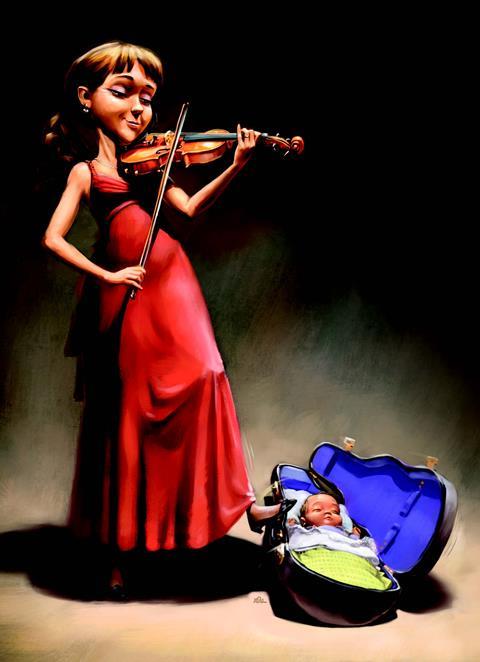
Discover more Featured Stories like this in The Strad Playing Hub
The hectic touring schedule of elite soloists couldn’t be more at odds with trying to raise a family. And yet more and more string players are determined to fit the demands of performing around family life. Rachel Barton Pine gave birth to her daughter Sylvia and was back on the road three weeks later. Leila Josefowicz, who is expecting her second child in May, had a full programme of high-profile performances throughout March. Looking after a young family while putting in the hard slog necessary to maintain a high-flying solo career is the daily reality for many players, both female and male.
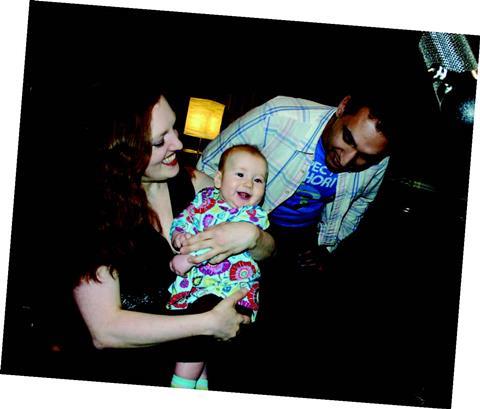
Most soloists take surprisingly little time off around the birth. In contrast to other professions, where mothers may have up to a year of maternity leave, the consensus seems to be that soloists will stop playing at some point in the two months leading up to the birth, and start playing again two months after it. The main difficulty performers face is that concert schedules are regularly set in stone two years before the event, which makes planning around the unknown factors of a pregnancy virtually impossible. Josefowicz is, when I speak to her, in the middle of one of the most important seasons she’s ever had, and at seven months pregnant will be giving two performances of Esa-Pekka Salonen’s Grawemeyer Award-winning Violin Concerto, recording the same concerto in Helsinki, then playing John Adams’s concerto with the composer in LA, followed by another performance of the Salonen in Boston.
Josefowicz has, however, had to cancel a handful of dates in Milan and Budapest. ‘Being pregnant and being on the road are very, very conflicting,’ she says. ‘Late concerts, irregular meals, time changes. You have to fight to keep any regularity – it’s very much the opposite of what your body wants to be doing while you’re pregnant. I felt bad about cancelling concerts but the benefits far outweigh the disadvantages. I’ve waited twelve years for this second child – I don’t want my pregnancy to be a huge endurance test.’
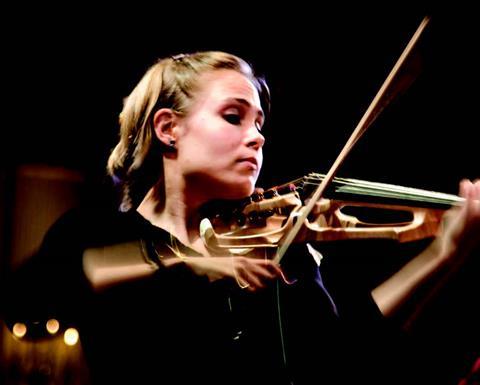
Tasmin Little was performing until two weeks before her daughter was born – she was taken by surprise when the baby arrived a fortnight before her due date. ‘I’d expected to have at least two more weeks of putting my feet up,’ she recalls. ‘It was good in some ways as it meant I only had to cancel one performance. I started playing again six weeks after I’d given birth.’ Lisa Batiashvili took a little more time. ‘I think your body tells you when to stop. I didn’t do any concerts for the last eight weeks of my pregnancy. But with both my children I started performing again about eight or nine weeks afterwards, and that’s a completely different experience. Your body really starts to feel the tiredness and that it needs rest.’
Pine restarted before baby Sylvia was a month old. ‘I played the complete Mozart concertos in a single concert. I did ask myself, “Couldn’t I just have done easy things, like the Brahms Concerto?” I mostly practised while she slept in those early weeks, and it really expedited my recovery. There’s obviously a fi ne line, as new mothers have to take the time to recover and not do too much. If I’d worn myself out I could have been ill. But playing music felt like such a healthy thing to do, and it was great to get back to practising. It seemed like time to reconnect with who I am. I was asked whether I was going to take any time off after having the baby, but I had to say, “Performing isn’t what I do, it’s who I am – I can’t take time off from who I am.”’
‘Performing isn’t what I do, it’s who I am — I can’t take time off from who I am’ - Rachel Barton Pine
The practicalities of feeding your baby when they’re very small was an issue that often came up when speaking to female soloists. ‘I remember the initial mayhem of trying to give performances while I was breastfeeding,’ says Little, ‘and trying to time things so I wouldn’t be needing to feed my daughter when I was supposed to be performing or rehearsing.’
Pine had worried in her pregnancy that breastfeeding would be very hard going. ‘But it’s what’s recommended to be best for babies nutritionally, so I thought I should try it. And it’s been much more convenient than carrying bottles about for travelling – when my fl ight’s delayed or the luggage is lost, I know I can still feed my baby. It does take a bit of extra planning. It hasn’t stopped me from doing any of my radio interviews, outreach work or masterclasses, but I make sure I know when I’ll get a 20-minute break to nurse Sylvia.’
Read: My violin heroine Maud Powell, by Rachel Barton Pine
Watch: Rachel Barton Pine and her daughter share two pieces from ‘Music by Black Composers’
Quite apart from the sheer logistics of planning performances around a very young baby, soloists also have to cope with the, perhaps unexpected, shift in priorities that being a parent brings. Up to this point in their lives, most performers have been incredibly single-minded about their music. Little remembers a concert just after her daughter was born. ‘I was playing The Lark Ascending at a concert, and it was probably about 20 minutes before I was likely to be walking on to the stage. I was feeding her backstage, and looking at the music of The Lark Ascending – and had this feeling of real perspective. There had never before been any interference in my priorities. I was so totally focused on performing. Then suddenly keeping this little baby alive was actually a bigger priority. It was a really peaceful moment of realisation, and one of the least nervous times I’ve ever had walking out on stage – it was a wonderful concert to play at, and of course I want to play my best, but I realised, “This isn’t life or death.”’
All the players I spoke to agreed that having less time to practise is an issue. ‘You must accept that you don’t have the time to prepare in the same way,’ says Batiashvili. ‘It’s tough. You just have to find a way to do more in less time.’ Pine also talks about how her practice schedule had to change. ‘My usual routine before the baby was born was to play different repertoire every week, so I would typically start working on repertoire a week ahead. I do have a little less practice time now, so at the end of the pregnancy I practised my next three months’ repertoire thoroughly. It was like a meal that was already cooked – I just had to reheat it to get it ready, rather than starting from scratch.’
It can be hard for players to make the day-to-day balance work. Gil Shaham says he and his violinist wife, Adele Anthony, have both cut back on their schedules since starting a family (they now have three children). I talk to him on the phone as he’s crossing New York’s Central Park, en route to picking up his daughter from school. ‘We’d spoken to people who said they regretted not having enough time to spend with their kids. We didn’t want to feel like that, so before my first child Elijah was born, I was very lucky to be able to cut down to around 50 concerts a year, with as many as possible being near my home. Before, I was doing three or four times that many concerts. But I do much shorter trips these days – II rehearse and play, then come back that night. Both Adele and I find that doing it this way we enjoy our music so much more – we get a lot of proper family time, but when we go into a room to practise and close the door, that’s also a very special feeling. We’re very lucky.’
For Little, maintaining some kind of normal family life is key. ‘It’s the day-to-day things that mean a lot. Obviously my kids are proud of me but what they really like is having a normal mum who takes them to school and picks them up, then spends time helping them with their homework. Even if I’ve come home at three in the morning I’ll make sure I get up and have breakfast with them. I don’t think of it as juggling because that implies some kind of chaos is about to happen.’
Taking children on tour is often a necessity in the very early days. Pine is lucky in that her husband has always toured with her, but she takes along a nanny too. ‘Air travel can be tricky. The violin is a bit like a child too – you can’t ignore it on a plane journey until you’ve put the stroller back together. Greg can watch the violin while the nanny watches the luggage and I watch the baby!’
Both Shaham and Little find that taking children on tour can work well if they know they will be able to spend some time with them around the performances. Shaham says, ‘When I played with the New World Symphony in Miami, the whole family came too. But it’s always a learning process – we’ve become better at it but we still have some things to iron out.’ Little is taking her two children (11 and 9) to Australia this summer. ‘Obviously I’m working but I do have some days off, so we’ll have an opportunity to do some sightseeing. They’re very used to concert halls, watching me perform and being backstage – it really adds to the occasion for me. And promoters are very nice about it – I remember one came up to me recently and said how lovely it was to see my children enjoying the concert.’
PARENTAL ADVICE
Soloists give their top tips for adjusting to life with a new arrival
‘Talk to friends and colleagues about what having a baby is like – don’t just rely on books. There’s no need to be afraid to ask for help when you need it’ - Rachel Barton Pine
‘Be confident enough in what you do to say that things are going to be a little different - that this is the time you want to take off’ - Leila Josefowicz
‘Find a balance that’s right for you. There’s a lot of guilt that can go along with having children, whatever your profession. You have to be incredibly fl exible, and listen to what your heart is saying as to how you want to juggle your time’ - Tasmin Little
‘Be very careful about your arms – avoid lifting your baby yourself when you can, as having tired arms can really affect your playing’ - Rachel Barton Pine
‘Always back up your iCalendar – being organised is key and you don’t want to lose that data’ - Gil Shaham
Many soloists dread how managers and record companies will react to the news that they’re starting a family. ‘I was very, very afraid, to make that phone call and tell my new management agency that I was expecting,’ says Pine. ‘I didn’t want to give them the impression that I wasn’t serious about my career. The baby was due last September and of course that’s when all the season-opening concerts are – I had to cancel them all. But the agency couldn’t have been more understanding. They said they’d see if the orchestras could do the concerts a year later – they really made it seem no big deal.’
Little tells a similar story. ‘My management has always been totally understanding. I’ve never felt under any pressure about my family life. But then I waited till I was 35 and well established before I started a family. I think it would have been very different if I’d started ten years earlier.’
Batiashvili says her management has been very supportive as well. ‘But this whole business is quite tough – if you don’t protect yourself it’s going to eat you. You’ll always be asked to do more recordings, more concerts. My main concern has always been to keep the pressure down and accept that I have to live my life outside my career too.’ Pine points out that these days, it’s quite normal for soloists to start a family without it having a big impact on their career. ‘Enough artists have done it that management knows that it won’t involve the artist cancelling an entire season.’
Despite the difficulties of balancing a solo career with family life, none of the players I spoke to had any doubt about the profound and positive emotional effect that having children has had on their music making. ‘There’s something about being more selfl ess that I think is really valuable for music – and for any art,’ says Shaham. ‘You fi nd that you have to let go of stuff. You realise you really can’t control everything and it gives you a certain freedom – it’s very liberating.’
Josefowicz says that the experience has changed her playing ‘in every single possible way’. She explains: ‘I’m a better player. There’s a certain humaneness that having a child brings. But also there’s a contrast there – you don’t have all the important parts of your life just in one place any more. There’s a balance. There are certain people in our profession who get very cocky, and feel that they’re the centre of the world. The baby is the fi rst one to let them know that they’re not – and it’s a very good reminder.’
THE BAD OLD DAYS
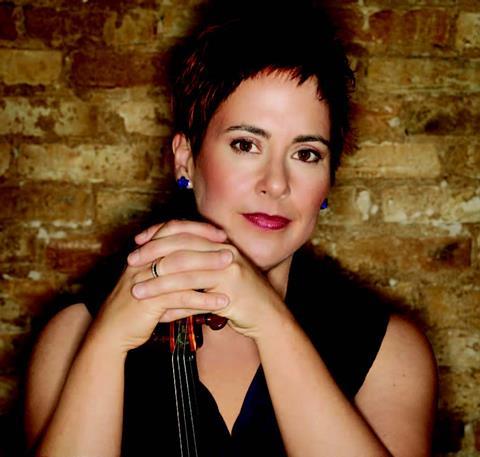
Just 20 years ago, marriage and children could be the kiss of death to a promising career, as Dylana Jenson found out the hard way
If starting a family seems tough for soloists in the 21st century, things could be much worse just two decades ago. The American violinist Dylana Jenson was a child prodigy, a pupil of Milstein and Gingold. By the age of 13 she had performed with many of the country’s leading orchestras, and at 17 she shared the silver medal in the Tchaikovsky Competition. She played on a 1743 Guarneri ‘del Gesù’, which she had on long-term loan from a collector. But when, at 21, she announced that she was getting married, the collector gave her notice that she would have to return the violin.
‘I was told that a married woman couldn’t be committed to a career,’ she recalls. ‘It was just a few weeks before I was due to play the Brahms Concerto with the San Francisco Symphony. I had this naive assumption that a violin would turn up, but my managers didn’t want me to tell people that I didn’t have an instrument. I would play on violins borrowed for a couple of weeks at a time from a friend who had a small violin shop. Then I had my first child and found myself in a very confused and depressed place. I tried everything I could to get a violin but nothing was working.’
Jenson kept up her touring with her three children. ‘I never had a babysitter or a nanny. It never occurred to me that they would be the reason I wouldn’t perform, so the kids came with me. Looking back, I really should have got some help.’ Currently, Jenson spends much of her time teaching. ‘I don’t have a manager or any illusion that things are going to change for me,’ she admits.
Read: ‘Travelling with the cello doesn’t get any easier’: Maja Bogdanović
Discover more Featured Stories like this in The Strad Playing Hub
The number one source for playing and teaching books, guides, CDs, calendars and back issues of the magazine.
In The Best of Technique you’ll discover the top playing tips of the world’s leading string players and teachers. It’s packed full of exercises for students, plus examples from the standard repertoire to show you how to integrate the technique into your playing.
The Strad’s Masterclass series brings together the finest string players with some of the greatest string works ever written. Always one of our most popular sections, Masterclass has been an invaluable aid to aspiring soloists, chamber musicians and string teachers since the 1990s.
American collector David L. Fulton amassed one of the 20th century’s finest collections of stringed instruments. This year’s calendar pays tribute to some of these priceless treasures, including Yehudi Menuhin’s celebrated ‘Lord Wilton’ Guarneri, the Carlo Bergonzi once played by Fritz Kreisler, and four instruments by Antonio Stradivari.


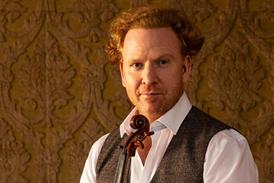







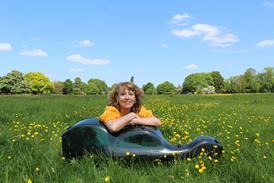


























No comments yet